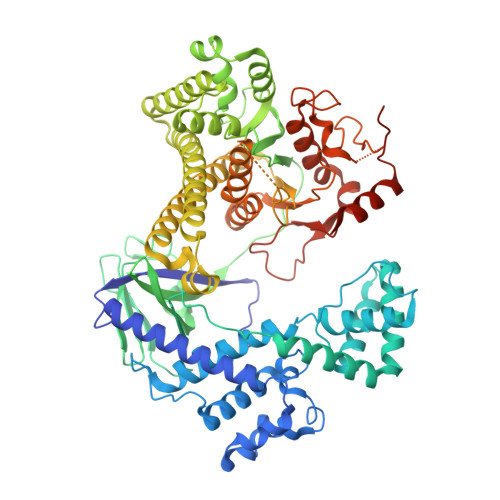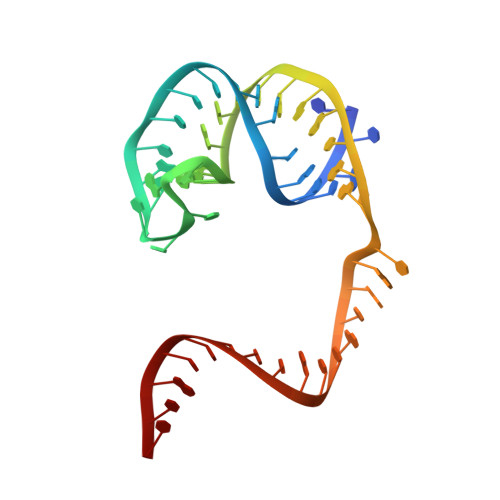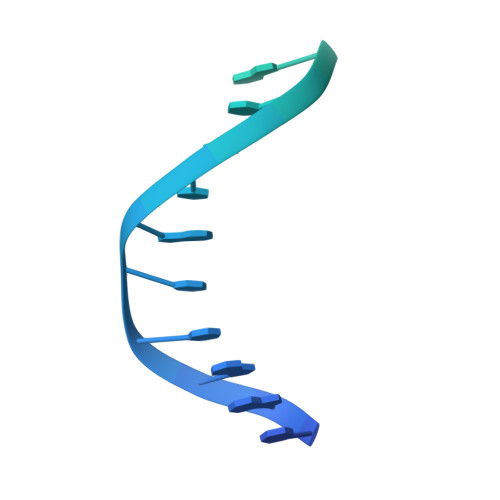Diverse virus-encoded CRISPR-Cas systems include streamlined genome editors.
Al-Shayeb, B., Skopintsev, P., Soczek, K.M., Stahl, E.C., Li, Z., Groover, E., Smock, D., Eggers, A.R., Pausch, P., Cress, B.F., Huang, C.J., Staskawicz, B., Savage, D.F., Jacobsen, S.E., Banfield, J.F., Doudna, J.A.(2022) Cell 185: 4574-4586.e16
- PubMed: 36423580
- DOI: https://doi.org/10.1016/j.cell.2022.10.020
- Primary Citation of Related Structures:
8DC2 - PubMed Abstract:
CRISPR-Cas systems are host-encoded pathways that protect microbes from viral infection using an adaptive RNA-guided mechanism. Using genome-resolved metagenomics, we find that CRISPR systems are also encoded in diverse bacteriophages, where they occur as divergent and hypercompact anti-viral systems. Bacteriophage-encoded CRISPR systems belong to all six known CRISPR-Cas types, though some lack crucial components, suggesting alternate functional roles or host complementation. We describe multiple new Cas9-like proteins and 44 families related to type V CRISPR-Cas systems, including the Casλ RNA-guided nuclease family. Among the most divergent of the new enzymes identified, Casλ recognizes double-stranded DNA using a uniquely structured CRISPR RNA (crRNA). The Casλ-RNA-DNA structure determined by cryoelectron microscopy reveals a compact bilobed architecture capable of inducing genome editing in mammalian, Arabidopsis, and hexaploid wheat cells. These findings reveal a new source of CRISPR-Cas enzymes in phages and highlight their value as genome editors in plant and human cells.
- Department of Plant and Microbial Biology, University of California, Berkeley, CA, USA; Innovative Genomics Institute, University of California, Berkeley, CA, USA; Department of Earth and Planetary Science, University of California, Berkeley, CA, USA; Department of Environmental Science, Policy and Management, University of California, Berkeley, CA, USA; University of Melbourne, Melbourne, Australia; Department of Chemistry, University of California, Berkeley, CA, USA; MBIB Division, Lawrence Berkeley National Laboratory, Berkeley, CA, USA; Gladstone Institutes, University of California, San Francisco, CA, USA.
Organizational Affiliation:



















